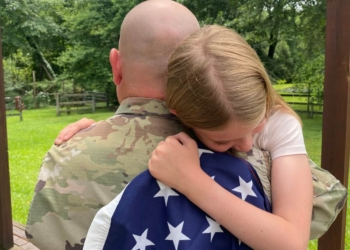Financial mistakes aren’t limited to enlisted service members, but with smaller paychecks, it can be harder to bounce back from mistakes. Here’s some common mistakes and how to avoid them.
Too much debt
We’ve all heard the stereotype about young service members buying muscle cars at 23% interest. It happens, but many service members of all ranks buy more expensive vehicles than they need. Also, they fail to see how much money they’re throwing down the drain by financing.
Focusing on “investing” returns
Enlisted service members are programmed to take action. It’s in our DNA. However, this often looks like taking on extra jobs or “investing” in risky financial products to try to squeeze out some extra cash. This often leads to even more issues. It’s usually much more helpful to zoom out and look for ways to “trim the fat” in your budget or lifestyle. A dollar saved is a dollar earned – actually more since you’ll pay taxes on extra earnings.
Not saving enough
Whether it’s our Thrift Savings Plan (TSP) contributions or emergency savings, we typically aren’t saving enough money. It can be tough at first. Coming from someone who used credit cards to pay rent at one point, it won’t be like that forever. Just start saving more than you spend. We started looking for “leaks” and made a budget. It got much easier to stop spending on things that didn’t matter to us and start saving. I recommend you start saving something and then increase your savings with each pay increase.
Too much house too soon
It’s really easy to get “house fever” and buy the wrong house at the wrong time. Buying a house isn’t always a bad thing. However, if you’re not staying long-term (more than 3-5 years), you likely won’t build any equity and may have a hard time selling. You’re also assuming a lot more risk (hello leaky roof). Not everyone wants to be or should be a landlord either. We jumped into buying a house before we understood things like:
- Amortization (you pay more interest in the first years of a mortgage)
- Property Taxes (typically increases after a recent sale, raising your payments)
- Real Estate Fees (typically much easier/cheaper to buy than sell)
We bought the “perfect” house at one duty station. However, we ended up filling that house with stuff and have been fighting to find room for or get rid of that stuff ever since. Buying the house accelerated our perceived minimum standard of living and has cost us a lot of money. It’s okay to rent. You’re not throwing money away. You’re buying a service.
Failing to have a financial exit strategy
This is true for all ranks – officers too. It blows my mind how many service members have no financial plan to leave the military. We all have to exit service or retire at some point. I’ve seen people continue to serve just because they didn’t have the financial confidence to get out and pursue another career. If you’re financially prepared to leave service, you can make an informed decision that’s best for your family. If you pay down debt, save for retirement, and have solid emergency funds, you won’t feel the need to stay in the military just for the money. You’ll never regret being financially prepared either way.
It doesn’t take a lot to avoid these mistakes, reduce your financial worries, and build wealth. A great starting point is the free personal financial counselor at your base. Make a plan and stick to it!
Read comments


































